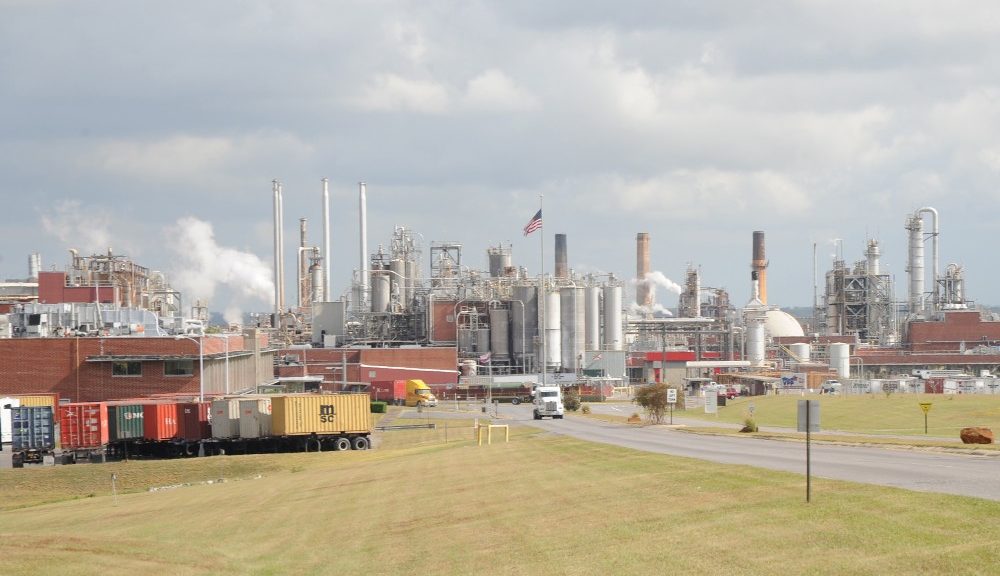The chemical company Ascend Performance Materials produces adipic acid, a key ingredient in the manufacturing of nylon 6,6 and polyurethane, synthetic materials used in everything from carpeting to car parts and running shoes.
Ascend vented 27,528 tons of nitrous oxide into the atmosphere from its adipic acid plant near Pensacola, Florida in 2020, the most recent year for which data are available, according to figures the company reported to the EPA.
We deliver climate news to your inbox like nobody else.
However, the gas, which is commonly used as an anesthetic by dentists, is generally considered to be not directly harmful to human health at low concentrations and is not regulated under the Clean Air Act.
Emissions of nitrous oxide from Ascend’s Pensacola plant, a sprawling chemical facility next to the Escambia River, place it among the nation’s top 25 greenhouse gas emitters alongside coal-fired power plants and oil refineries, the EPA data shows.
Company officials told Inside Climate News in early 2020 that they would voluntarily reduce their remaining nitrous oxide emissions by 50 percent by mid-2020 and should achieve a “well over 95 percent” emissions reduction by February of 2022.
“When you look under the hood, we have a lot of questions about whether those steps are really being taken,” said Jessye Waxman, campaign strategist for Climate Strategies Lab, a newly launched environmental advocacy organization focused on reducing greenhouse gas emissions from heavy industry, of Ascend’s emission reduction efforts.
Ascend has been working to develop its own nitrous oxide recycling technology since 2015.
Johnson did not specify when the 50 percent reduction in emissions was completed, however a sustainability report published by Ascend last year said the first phase of a new nitrous oxide emissions reduction project was brought online in late 2020.
The company sold carbon offsets from nitrous oxide emissions reductions in 2021 through the Climate Action Reserve, a non-profit organization that facilitates carbon trading.
Invista abates approximately 97 percent of its nitrous oxide emissions and, unlike Ascend, it is not eligible to sell carbon offsets for its existing emissions reductions.
How quickly and to what extent Ascend reduces its nitrous oxide emissions could affect its financial outlook because SK Capital, Ascend’s owner, has been reported to be considering selling the company.
The novel chemical recycling approach Ascend is pursuing would add additional cost, though the expense would likely be relatively modest for the company, the value of which Bloomberg placed at $5 billion.
Invista will license its nitrous oxide abatement technology to Shenma as part of a larger agreement, in which Shenma will provide Invista with adipic acid for nylon 6,6 production.
Invista previously installed pollution controls at Shenma’s adipic acid production facilities in the early 2000s through a United Nations program that provided incentives for Shenma and other Chinese producers to abate their nitrous oxide emissions.
Shenma previously told Inside Climate News that it continued to abate its emissions after funding for the U.N.
Before joining ICN in 2016, he was a freelance writer covering energy and the environment for publications including The New York Times, Smithsonian, Audubon and WIRED.
Every day or once a week, our original stories and digest of the web’s top headlines deliver the full story, for free.
Long touted as a renewable fuel emitting 20 percent fewer greenhouse gasses than gasoline, ethanols’ emissions may be 24 percent higher.
